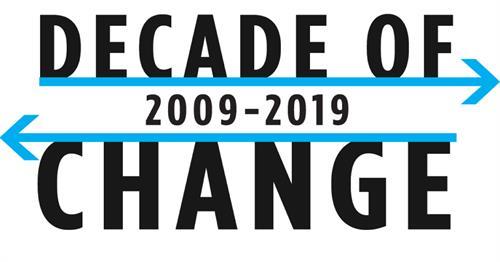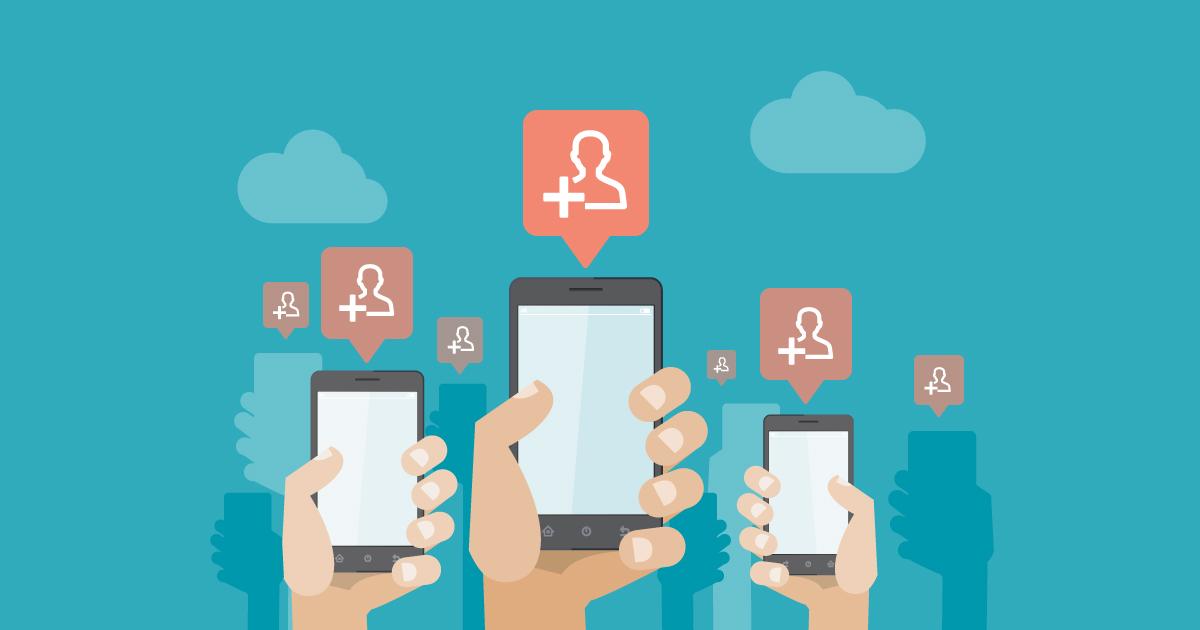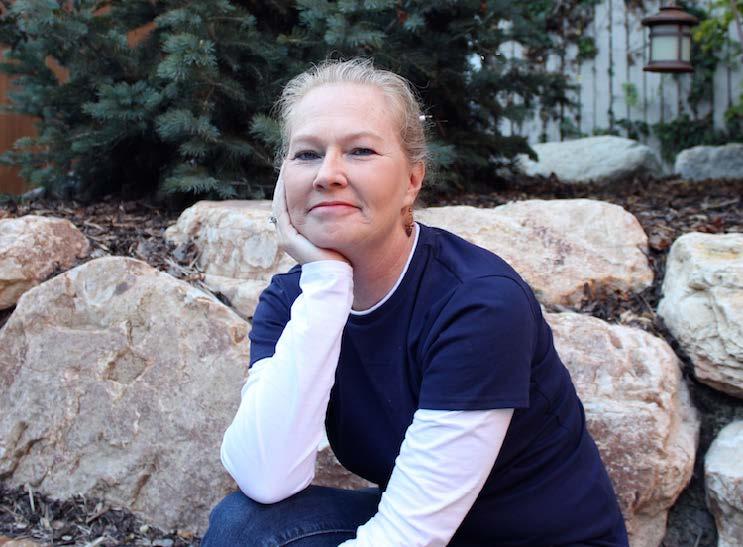Follow The Meeting Professional this year as we examine meeting and event industry milestones and challenges over the past decade.
Although Facebook—the granddaddy of social media platforms—is celebrating its 15th birthday this year, the meeting industry climbed on board the social media bandwagon less than a decade ago. What began as a way to vent and share menu selections with friends evolved into an event marketing channel, an onsite engagement tool and a sponsorship vehicle. And while the noise from social media chatter continues to grow, event planners remain all in on social, even the ones that ask attendees to put their devices down sometimes.
Pivot Fast
Kiki L’Italien is CEO and founder of Amplified Growth, a digital marketing consultancy specializing in podcast strategy, search engine optimization, social media and influencer marketing. As an early adopter, she was among the first people to see the potential of social media for associations and events, even though her clients needed some coaching.
"Back then, I was always having to convince them that Facebook, for example, wasn’t just for kids and that it was a legitimate channel for reaching an audience,” she says.
In the early days, just posting on social media was enough to get attention. Those days are gone, L’Italien says. While generic or vague messaging wasn’t exactly a best practice at first, she didn’t push as hard on getting the style or tone right because social media was new, everyone was experimenting and even bland posts were getting noticed.
“Now, my Apple Watch is buzzing to tell me to stand up. My Amazon Alexa is reminding me to pick up the dog from the groomers, and it goes on and on,” she says. “Bland doesn’t work anymore.”
Content formats have taken a radical turn in 10 years, too. At first, social media practitioners like L’Italien believed that text was the simplest way to reach people. That belief gave way to the conviction that photos “would stimulate the brain and people would respond.” But fueled by mobile, social media platforms began to favor images over text. That algorithm tune-up led to the explosion of video.
“Even if [the video] was a little bit shaky and not slick or produced, it was authentic, and people watched it,” she says. “Today, 10 year olds have video sets in their garages, and everyone has to up their game.”
Related Article: Social Influencers Can Help Promote Your Event

The Value of a Team
When Stefany Blinn, experiential event manager at Zillow, first joined the technology solutions company, one person—a recent college graduate who had been an intern—managed social media for the firm and her events.
“He was in a unique position because he became a larger-than-life character who was the voice of the Zillow Group’s b-to-b brand on social media,” Blinn says.
As the firm grew, its use of social media expanded, and today Zillow has dedicated social media teams to manage the social strategy and execution for its lines of business and its events.
Zillow’s social media teams are involved in developing event strategy.
“We work closely with our b-to-b social media teams, which are aligned with specific verticals under the umbrella of our businesses,” Blinn says.
For the company’s larger events, a member of the social media team is included in the core group of event stakeholders.
“They are a critical component of our team and a critical marketing channel for us,” Blinn says. “They have a seat at that table as we plan and prep and execute and follow up throughout the planning process and on site.”
While the rules of engagement with attendees via social media platforms haven’t changed since the beginning, Blinn says, “we now have new opportunities for engagement via social media platforms.” For example, the embedded social media team monitors hashtags during events to address issues (the room is too hot, for example) and gauge audience sentiment. During a recent general session, the Instagram flurry from a group of real estate professionals and fans of keynote speaker Brené Brown was the only sign of enthusiasm from an otherwise rapt crowd.
Related Article: Meet Your New Digital Event Staff, Chatbot Assistants
More Than Marketing
When Alex Plaxen (MPI Potomac Chapter) launched Little Bird Told Media, a digital-engagement consultancy, just over three years ago, his first projects were to embed himself in client meetings and execute on the social media strategies he developed for them. He soon realized that tweeting and posting was a job that the clients could manage internally. The real value was in the approach, specifically in repositioning social media as an engagement tool, rather than a marketing tool.
“It’s a mission I’m still on, which is trying to get [customers] to disassociate the term social media from marketing,” he says.
Plaxen moved away from social media as purely a marketing channel for a few reasons.
“No one ever turns on the TV to watch the commercials,” he says. “If all you’re going to do is try to sell them, they’re not going to follow you, and any other strategies will fail.”
Instead, he focused on engagement: creating social media sponsorships and crisis communications plans, developing micro-communities and supporting tribes.
“Getting away from that ‘social media is marketing’ mindset is where I’m starting to see change,” Plaxen explains.
Budgeting for social media has also evolved in the past few years. As organizations think more broadly about the value of social media and learn that “social media is a tool, not a strategy,” Plaxen says, planners can think about ways to fund social media outreach through other event budgets besides marketing.
“When the strategies are sponsorship, crisis communication and engagement, you should have no problem justifying to your CFO why you need money to support these efforts,” he explains.
Slow Down
As the director of events at Social Media Examiner and Social Media Marketing World (SMMW), Phil Mershon has a perspective on social media that few other event planners have. His team has leveraged Twitter, Facebook and LinkedIn from the beginning of the event’s seven-year history. In the early days, attendees were prompted to connect before, during and after SMMW via LinkedIn groups. Today, attendees can choose from 19 different Facebook groups and, more recently, organizers have embraced Instagram to share event photos, videos and stories.
Even though organic growth on social media platforms is much harder to achieve now, it’s still necessary to try.
“Social media is a very busy space, and it’s difficult as a business to get your message in front of your audience, particularly if you’re not willing to spend money,” Mershon says.
However, it doesn’t mean “you can go straight to the buy.” He advises marketers to invest in a long-term relationship with customers first “so when they’re ready to buy what you have, they already know, like and trust you.”
Mershon has seen a behavior shift in the social media marketers that his event serves.
“People are increasingly putting their devices down and focusing on connecting face to face,” he says. “They know they have the rest of the year to connect through the technology.”
They’ve also begun to think more like content creators and journalists.
“They don’t have to share everything they’re experiencing right away,” Mershon says. “They know they can spread it out over 30 days.”
Despite SMMW’s emphasis on social media, event organizers now encourage attendees to take a break from tweeting and posting during the event.
“We do that because we know learning happens in the deeper space, not in the tweetable space,” Mershon says. “We ask people to put their devices aside for periods of time, take notes, go for a walk or take a nap.”
For the first time in the event’s history, it will offer the Recharge Lounge, “a place to get refreshed in body and mind” sans social media. Even professionals need a break.



